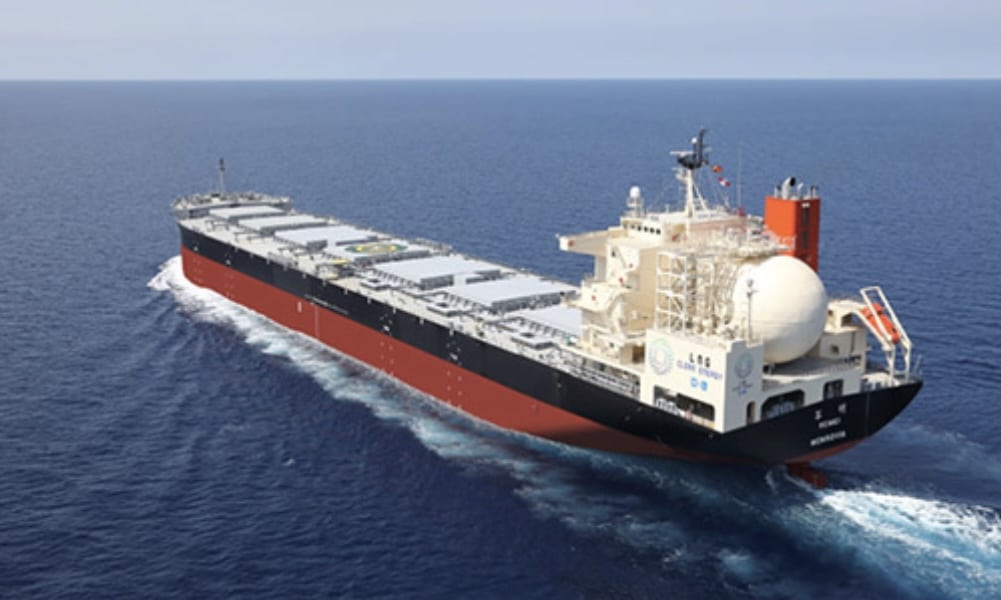Mitsui OSK Lines Cuts Methane Emissions by 98%

Japan’s Mitsui OSK Lines (MOL) has made a groundbreaking advancement in reducing methane emissions, achieving a remarkable 98% reduction during recent sea trials. This significant development comes just ahead of the Marine Environment Protection Committee meeting at the International Maritime Organization (IMO), where the use of LNG as a fuel is expected to be a contentious topic among delegates. The successful trials could reshape the emissions profile of LNG-fueled vessels, addressing a critical concern for regulators and environmental advocates alike.
Innovative Technology and Promising Results
In collaboration with Kanadevia and Yanmar Power Solutions, MOL tested a new methane oxidation catalyst and engine modification system aboard the Reimei, an LNG-fueled coal carrier operating between Japan and Australia. The trials exceeded the project’s initial target of a 70% reduction in methane slip, achieving a staggering 98% reduction, which surpasses the 93.8% reduction seen in previous land-based trials certified by ClassNK.
Methane slip, the release of unburned methane from LNG engines, poses a significant challenge for the shipping industry. Methane is known to have a warming potential approximately 80 times greater than that of carbon dioxide over a 20-year period. Despite LNG’s growing popularity as an alternative fuel, its climate credentials have been undermined by methane emissions. However, MOL’s recent success in nearly eliminating methane slip in real-world conditions may provide a crucial lifeline for LNG in the ongoing decarbonization debate.
The trials, which will continue through fiscal 2026, aim to assess the durability of the system and the lifespan of the catalyst before a full commercial rollout planned for 2027. MOL is committed to promoting the early adoption of this technology across its LNG-fueled fleet and sharing its findings to encourage broader implementation within Japan’s shipping sector.
Regulatory Landscape and Industry Reactions
Next week, the IMO will discuss its Net-Zero Framework, which proposes new carbon fees starting in 2027 as part of its commitment to achieving net-zero emissions by 2050. This framework has sparked debate within the industry, particularly regarding the future role of LNG. Christopher Wiernicki, the outgoing chairman and CEO of ABS, expressed concerns about the IMO’s planned net-zero framework, emphasizing the need for a clear pathway for green fuel availability and infrastructure support. He argued that LNG and biofuels are essential for the industry’s success and should not be overlooked or overly penalized.
Peter Keller, chairman of SEA-LNG, a group advocating for LNG as an alternative shipping fuel, echoed this sentiment, stating that LNG is currently delivering emissions reductions and offers a viable route to net-zero through biomethane and e-methane. He urged future regulations to recognize the proven benefits of methane decarbonization pathways.
The debate surrounding LNG’s role as a leading alternative fuel in shipping continues to evolve. Recent data indicates that in the first nine months of 2025, there were 192 new orders for alternative-fueled vessels, with LNG-fueled ships accounting for the majority at 121 orders. This trend highlights the ongoing interest in LNG as a transitional fuel, even as discussions about its long-term viability and environmental impact persist.
